SPATIAL AWARENESS OP-ED
Wolwerivier Emergency Housing Camp is hell on Earth, 32km from heart of Cape Town
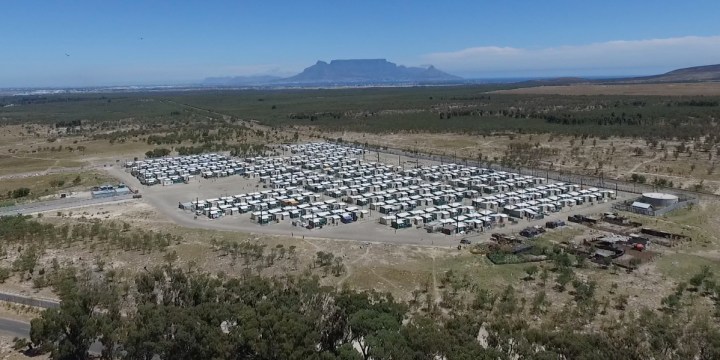
Any person visiting the City of Cape Town’s Wolwerivier Emergency Housing Camp cannot help but conclude that it is a human dumping ground. Emergency housing should provide more than a roof; it should offer a pathway to dignity. The conditions at Wolwerivier reveal a different story.
In the shadows of our city, a forgotten community stands on the periphery, 32km away from the heart of Cape Town at the Wolwerivier Emergency Housing Camp.
It is a temporary relocation area that has become synonymous with neglect, despair, and human suffering. To call Wolwerivier “hell on Earth” is not mere hyperbole; it is an attempt to encapsulate the lived reality of its residents who find themselves trapped in a limbo of governmental indifference and societal invisibility.
Here the realities of displacement, isolation and the erosion of dignity paint a stark picture that demands our collective attention.
The Ndifuna Ukwazi Law Centre recently visited Wolwerivier as part of an ongoing court case that challenges the rationality of this form of emergency housing. While it was not our first visit, we were struck not only by how little has changed for this community (which of course is sadly not uncommon) but also how the community, literally dislocated, has also come to embody the adage “out of sight, out of mind”. The 32km gap represents more than just physical space; it is a chasm of disconnection.
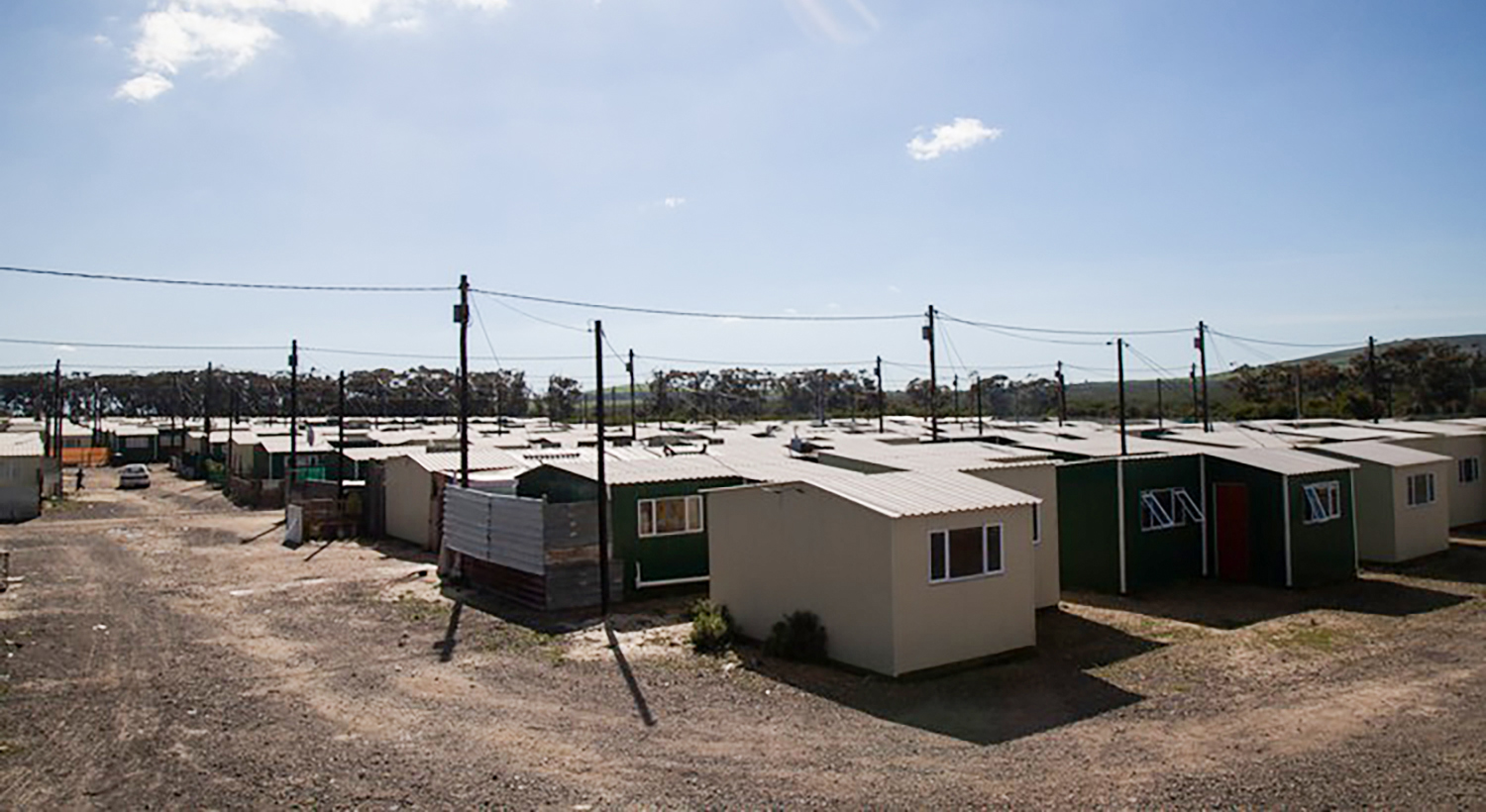
The basic structures that constitute Wolwerivier. (Photo: Ashraf HendricksGroundUp)
In 2015, at the time of Wolwerivier’s establishment, GroundUp reported that “there is a deepening crisis of overcrowding, joblessness, insecurity and general destitution at Wolwerivier relocation camp”.
At the time, and for a few years, there seemed to be general outrage that the City would even contemplate creating emergency housing so far away from everything.
Read more in Daily Maverick: Wolwerivier five years on: ‘We’re as desperate as the day we moved in’
Even the City’s environmental impact assessment (EIA) procured in 2011 for its establishment warned that “the resettlement of the Vissershok residents at Wolwerivier will result in the creation of an isolated community resulting in long distances from places of employment, places of education, health facilities, basic infrastructure, shops, etc.”
Other experts and civil society activists decried what would happen if the City went ahead. For instance, Josette Cole, Executive Director of DAG and Research Associate with the Centre for Archive and Public Culture at the University of Cape Town said they believed that “this is not a solution, it will just create more problems. This is just like Blikkiesdorp, they are going to end up with all the social problems”.
The decision to create a camp in a remote location raises fundamental questions about the rationale behind such a choice. Why, in the face of apparent impracticality, did the project proceed? Equally pressing is the inquiry into our societal responsibility and awareness. Why, despite recognising the dubious nature of this decision, have we allowed it to slip from our collective awareness and conscience?
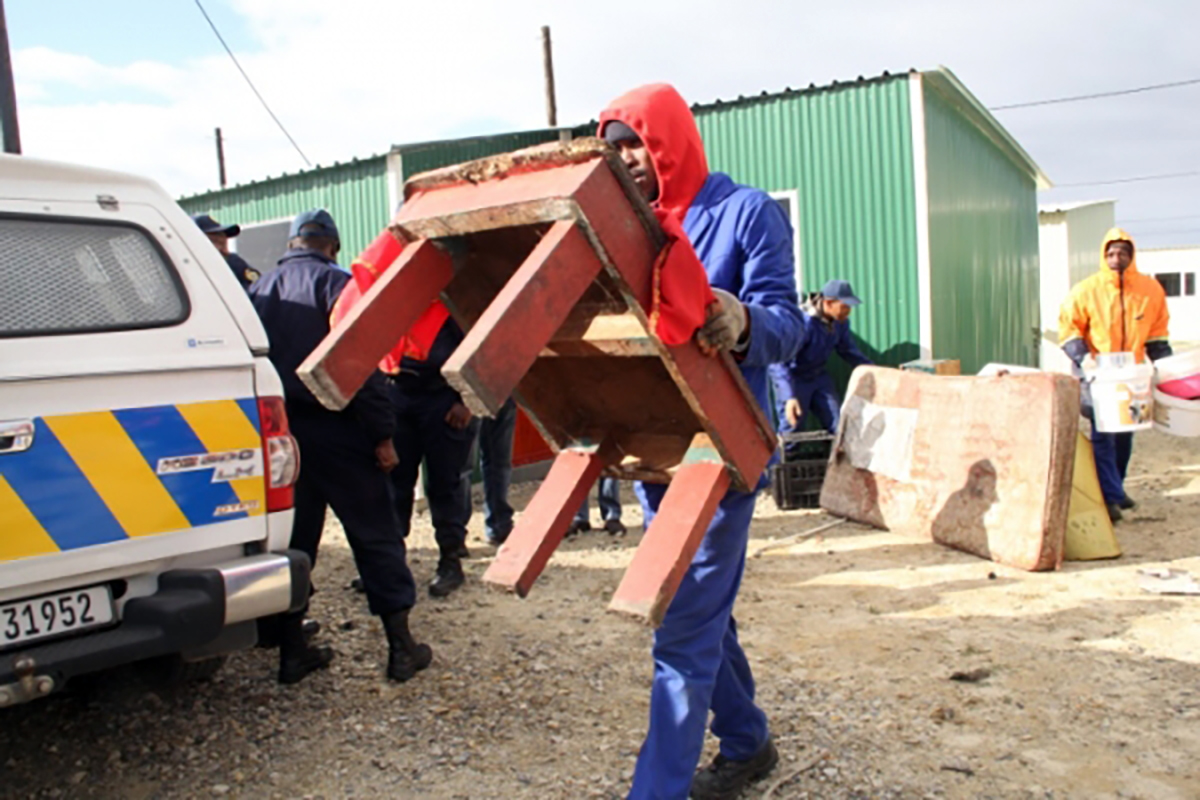
Contractors with the Anti-Land Invasion Unit remove the possessions of a household accused of illegally occupying one of the City of Cape Town built structures at Wolwerivier. (Photo: Daneel Knoetze GroundUp)
Spatial divides persist
Unravelling these complexities is crucial not only for understanding the genesis of this situation but also for acknowledging our role as a community in either challenging or inadvertently endorsing decisions that perpetuate spatial injustices.
As we explore the intricacies of this scenario, it prompts us to reflect on the broader implications of our collective inaction and to confront the uncomfortable reality that sometimes, in the midst of our bustling lives and a mountain of local and global challenges, issues as critical as the location of an emergency housing camp can slip through the cracks of our consciousness.
To its credit, GroundUp has continued to report on various issues at Wolwerivier, such as water cuts, illegal evictions by law enforcement, closure of a much needed creche, Covid-19 and life under lockdown, as well as some feel-good stories about karate and baking classes.
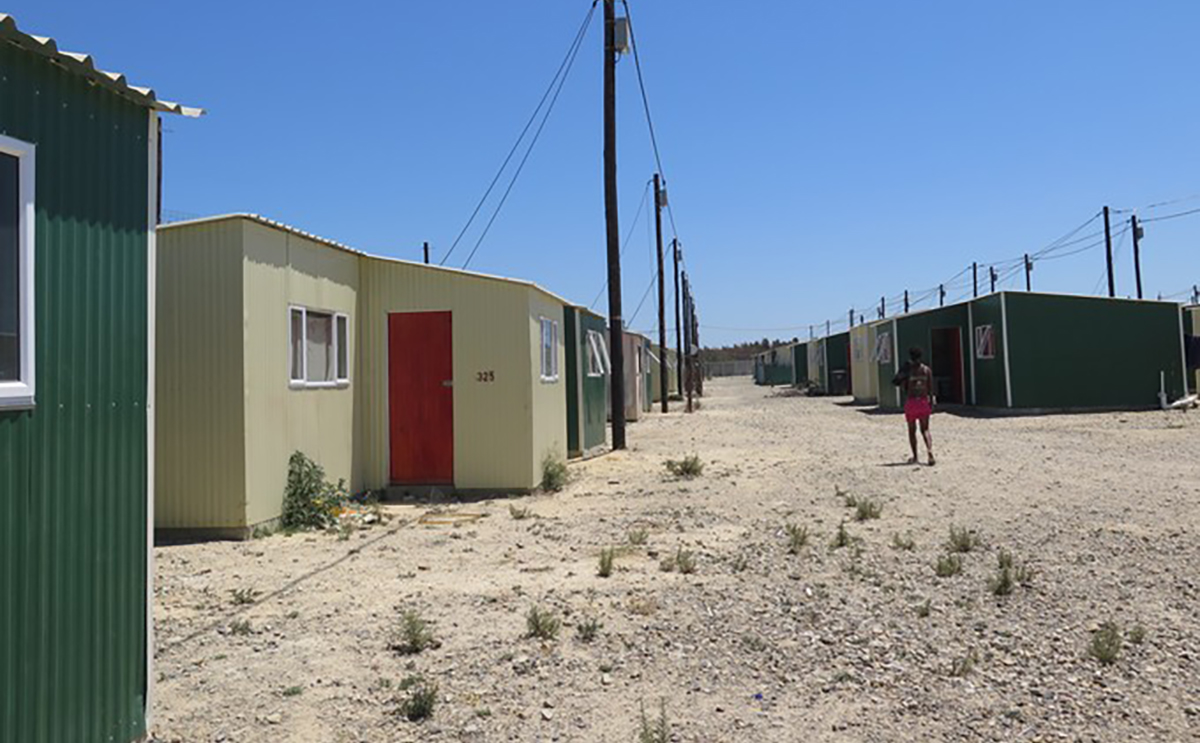
Wolwerivier residents have been without running water in Cape Town’s heatwave. (Photo: Ashleigh Furlong/GroundUp)
Despite these valiant efforts, any person visiting Wolwerivier cannot help but conclude that it is a human dumping ground. Emergency housing should provide more than a roof; it should offer a pathway to dignity. The conditions at Wolwerivier, however, reveal a different story. Residents grapple with the challenges of isolation and inadequate infrastructure, limited sanitation facilities, fires and the absence of basic amenities.
During our visit, we were dismayed to learn about a fire in December 2023 that ravaged four homes. What is even more disconcerting is the City’s failure not only to respond promptly to distress calls, but also subsequently, its failure to provide alternative accommodation or initiate the reconstruction of the damaged structures.
The evident disregard for the well-being of residents in the emergency housing on the City-owned land draws unsettling parallels with the tragic Marshalltown fires last year. In that context, the City of Johannesburg faces potential liability for the loss of life and property damage.
Read more in Daily Maverick: Almost two months later, City of Joburg struggles to resolve Marshalltown fire problems
This situation transcends mere negligence; it delves into the profound consequences of homes lost and the potential jeopardy to lives due to a lack of preventative measures, placing the City in a precarious legal predicament.
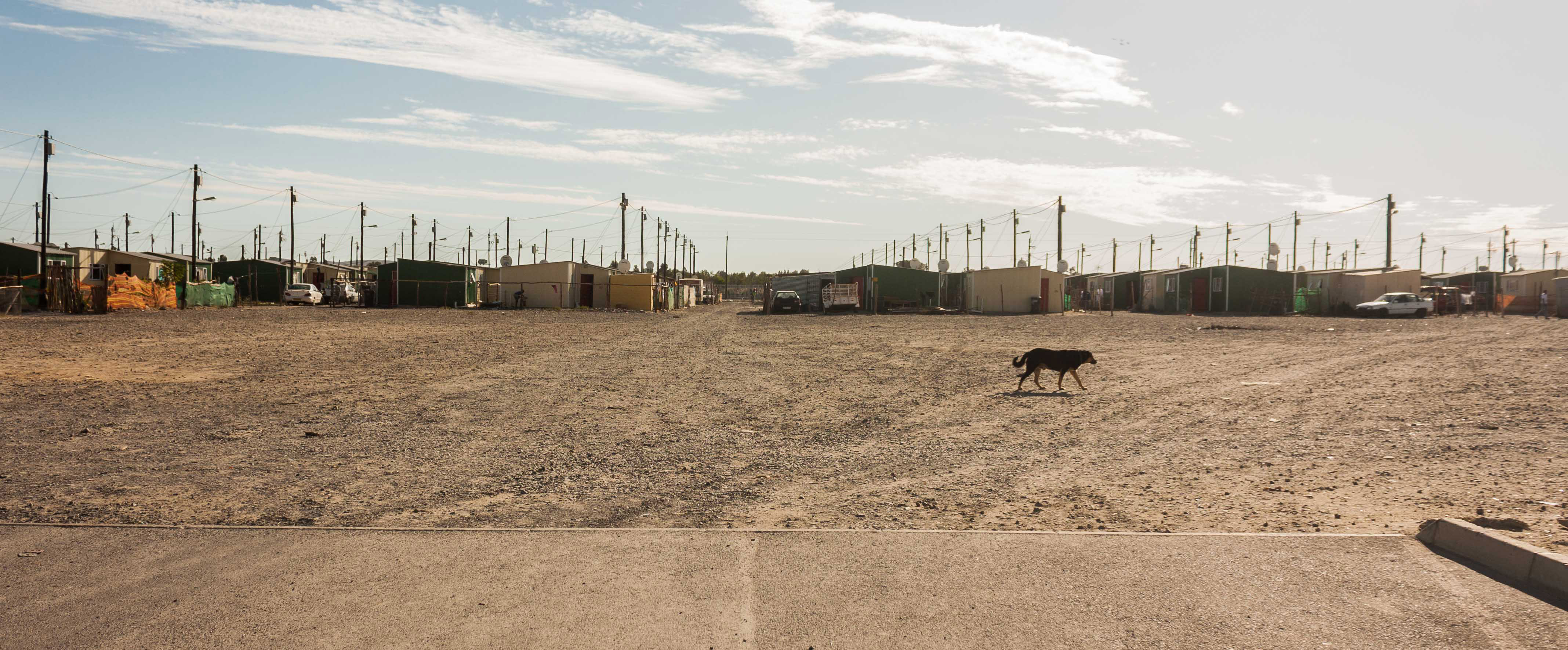
The dusty landscape of Wolwerivier. (Photo: Jonty Cogger)
The Wolweriver emergency housing camp serves as a poignant reminder that emergency solutions should not exacerbate existing spatial and socioeconomic inequalities.
This observation gains heightened significance as the Constitutional Court convenes on 27 February 2024 to deliberate on the Bromwell appeal. In this appeal, six families from Woodstock aim to challenge the constitutionality of the City’s peripheral emergency housing camps, asserting that they replicate the spatial patterns of apartheid.
Read more in Daily Maverick: Cape Town’s emergency housing programme is ‘arbitrary’ and unconstitutional, says court
The story of Wolweriver should not be one of despair; it is a call to action. As a community, we must advocate for more equitable and thoughtful interventions. Let us challenge ourselves to think beyond the immediacy of shelter and consider the long-term impact on the lives of those we aim to assist. Let us bridge the gap that separates us, not just in kilometres, but in our commitment to creating a city where every individual, regardless of circumstance, can thrive.
As the Constitutional Court grapples with these issues, we have an opportunity to put pressure on the City to redefine emergency housing, ensuring that it aligns with our collective values and aspirations for a more compassionate and equitable society.
The true measure of our city’s greatness lies in how we uplift those on the fringes, ensuring that no one is left behind, 32km away from the heart of Cape Town. DM
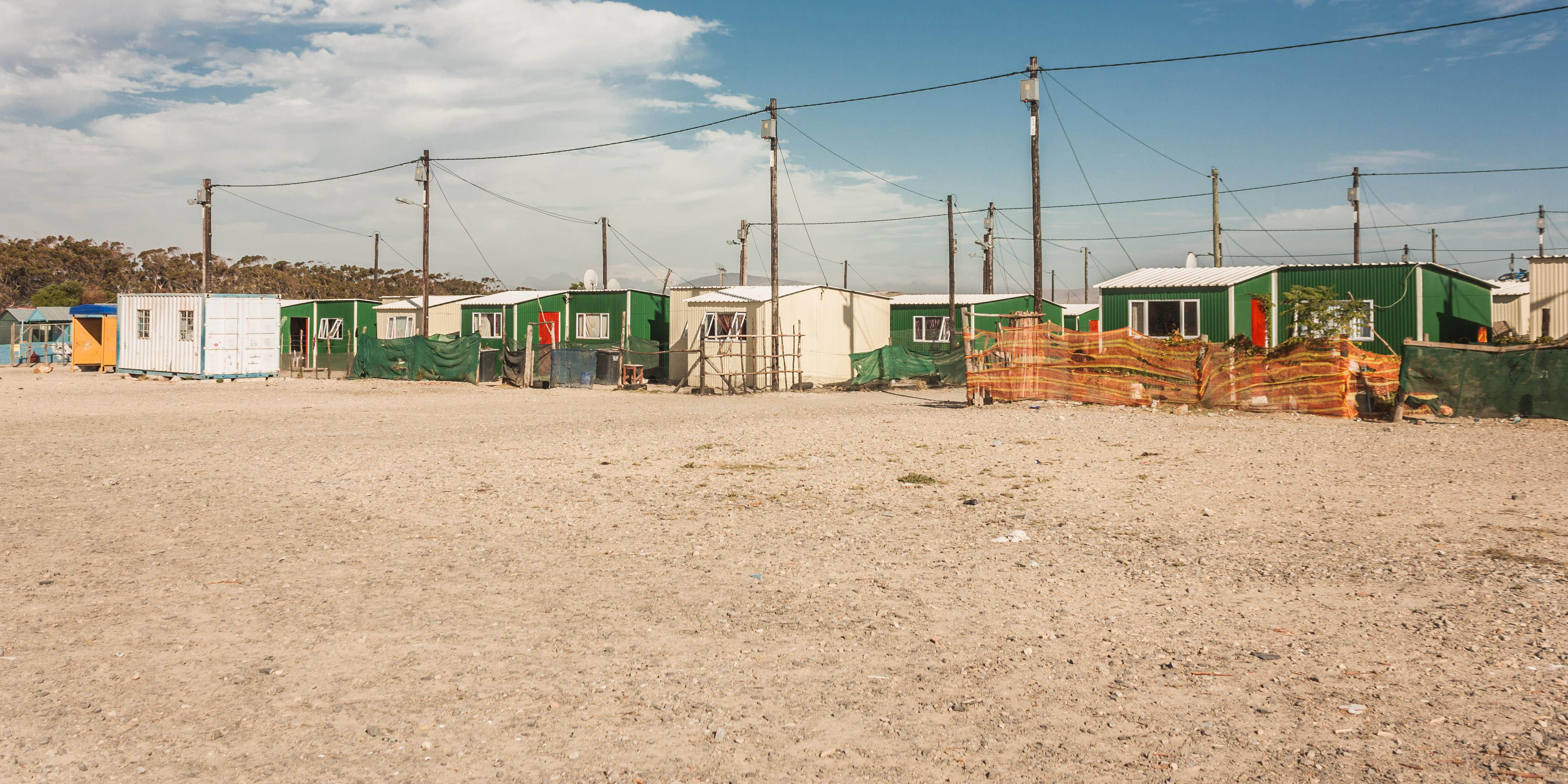
Wolwerivier, located 32km away from Cape Town city center, represents a chasm of disconnection and isolation. (Photo: Jonty Cogger)





















 Become an Insider
Become an Insider
It is very sad, but what is the proposed solution? People flee to the region in the hope of a job, not because of a job. Where they come from is hopeless because of mismanagement of our economy.